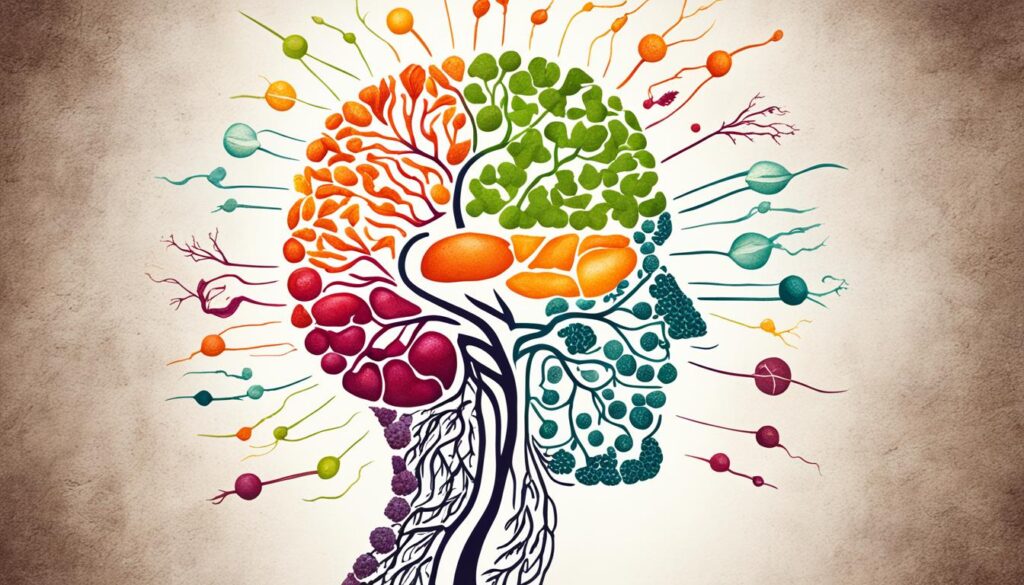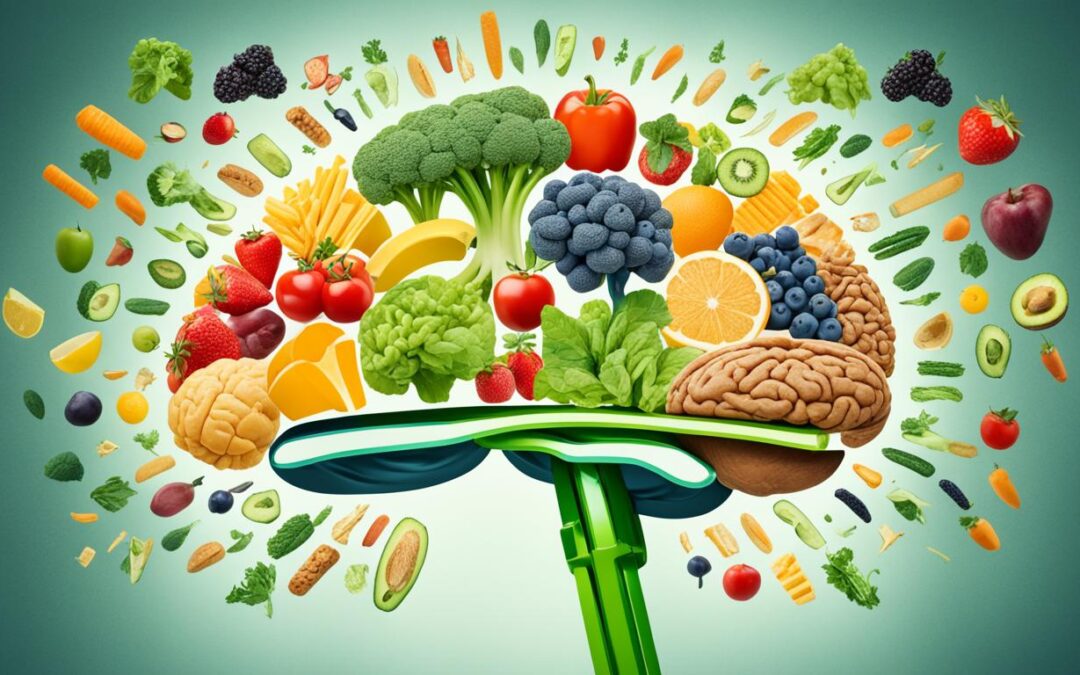Welcome to our blog post on the fascinating topic of how nutrition impacts your mental wellbeing. It’s no secret that what you eat plays a significant role in your overall health, but did you know that it also has a profound effect on your mental state? Numerous research studies have shown that the food you consume can have a direct impact on your cognitive function, attention span, and concentration.
The Impact of Diet on Stress and Depression
Studies have shown that your diet can significantly affect your mental health, particularly when it comes to stress and depression. A poor diet, characterized by high consumption of processed foods and added sugars, can lead to inflammation in the body and brain. This inflammation has been linked to mood disorders, including anxiety and depression.
During periods of stress and depression, you may find yourself turning to unhealthy food choices as a quick pick-me-up. Unfortunately, these foods can actually make matters worse. They can exacerbate your symptoms and create a vicious cycle of negative emotions and poor dietary patterns.
On the other hand, adopting a healthy diet that includes plenty of fruits, vegetables, whole grains, and foods rich in omega-3 fatty acids can help reduce inflammation and alleviate symptoms of stress and depression. Incorporating foods like salmon, known for its omega-3 content, into your meals can have a positive impact on your mental wellbeing.
Maintaining a balanced diet is crucial, especially during challenging periods. By providing your body with the necessary nutrients, you can support your overall mental health and better manage stress and depression.
Reducing Inflammation through Diet
Inflammation in the body and brain can contribute to the development and progression of stress and depression. By adopting an anti-inflammatory diet, you can help reduce inflammation and support your mental wellbeing.
| Food Group | Examples |
|---|---|
| Fruits and Vegetables | Blueberries, spinach, kale, broccoli |
| Whole Grains | Brown rice, quinoa, whole wheat bread |
| Omega-3 Fatty Acids | Salmon, walnuts, chia seeds, flaxseeds |
| Antioxidant-Rich Foods | Green tea, dark chocolate, berries |
By incorporating these foods into your diet, you can help combat inflammation and promote a healthier mental state. Remember to avoid processed foods and added sugars, as they can contribute to inflammation and worsen symptoms of stress and depression.
The Gut-Brain Connection
Research has revealed a strong connection between the gut and the brain, with the two communicating through the vagus nerve. The gut is home to a diverse population of bacteria that produce neurochemicals used by the brain to regulate mood and other physiological processes. The gut microbiome can influence emotional behavior, and stress can disturb the balance of beneficial gut bacteria. Evidence suggests that approximately 95% of serotonin production, a mood-stabilizing neurotransmitter, occurs in the gut. Therefore, maintaining a healthy gut through a nutritious diet is essential for mental health.
Consuming foods rich in fiber, such as fruits, vegetables, and whole grains, and incorporating fermented foods can promote a healthy gut and support positive mental wellbeing.

| Benefits of a Healthy Gut-Brain Connection | Consequences of an Imbalanced Gut-Brain Connection |
|---|---|
| Improved mood and emotional wellbeing | Increased risk of mood disorders, such as depression and anxiety |
| Enhanced cognitive function and mental clarity | Reduced cognitive abilities and difficulty concentrating |
| Strengthened immune system | Increased susceptibility to infections and autoimmune disorders |
| Better stress management and resilience | Heightened stress response and decreased ability to cope with stress |
By prioritizing a diet that supports a healthy gut-brain connection, you can optimize your mental health and overall wellbeing.
The Role of Mindful Eating
Mindful eating is a powerful tool for nurturing both your body and mind. By paying close attention to the foods you eat and your eating habits, you can cultivate a healthier relationship with food and enhance your overall mental wellbeing.
One effective strategy for practicing mindful eating is to keep a food journal. This simple practice allows you to gain insights into your eating patterns and identify any emotional triggers that may contribute to unhealthy eating habits. By understanding your triggers, you can develop healthier coping mechanisms and make more mindful choices when it comes to food.
During meals, it’s important to be present and fully engaged in the experience of eating. Take the time to savor each bite, paying attention to the taste, texture, and aroma of your food. By slowing down and focusing on the present moment, you can develop a greater appreciation for the nourishment that food provides.
Another essential aspect of mindful eating is recognizing and responding to hunger cues. Instead of reaching for processed and sugary foods when you’re hungry, listen to your body’s signals and choose nutritious snacks that support your wellbeing. Opt for fresh fruits, nuts, and vegetables that provide essential vitamins, minerals, and antioxidants.
By practicing mindful eating, you can transform your relationship with food and harness its potential to positively impact your mental health. By being more attentive to your body’s needs and making conscious choices, you can create a balanced and nourishing diet that supports your overall wellbeing.
Brain-Boosting Nutrients
Proper nutrition is vital for optimal brain function and overall mental health. To support your brain’s needs, incorporate a variety of brain-boosting nutrients into your diet. Start by consuming a range of carbohydrates, proteins, and minerals, allowing the brain and nervous system to build new proteins, cells, and tissues. Complex carbohydrates like brown rice and starchy vegetables provide sustained energy, while lean proteins from sources like chicken, fish, and nuts support cognitive function and quick thinking.
Don’t forget about the importance of fatty acids for brain health. These essential nutrients, found in fish, eggs, nuts, and flaxseeds, play a crucial role in brain function and the health of the nervous system. By including these brain-boosting nutrients in your balanced diet, you can enhance your mental wellbeing.
When it comes to maintaining brain health, it’s equally important to avoid certain foods. Steer clear of processed snack items and sugary treats that offer little nutritional value. Instead, opt for healthy fats like olive oil and avocado, which further support brain health and overall mental wellbeing. By making smart food choices, you can nourish your brain and promote positive mental health.

